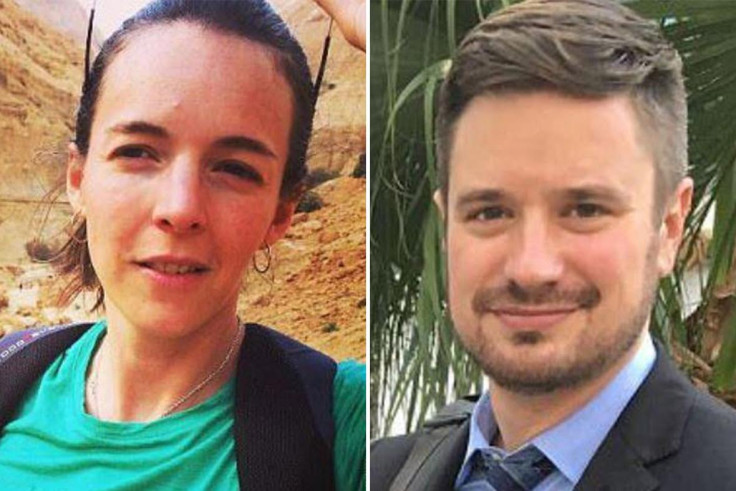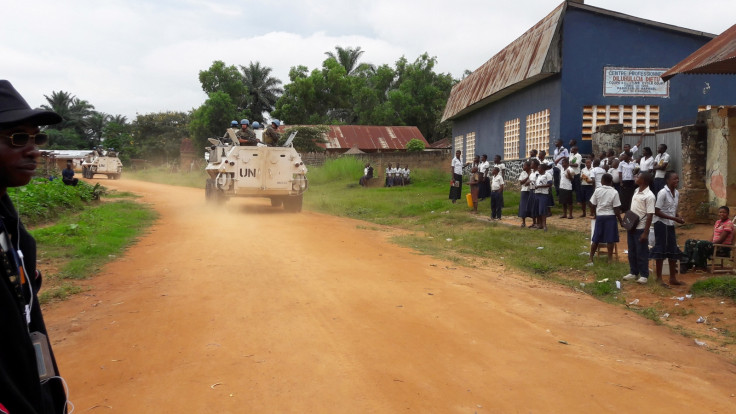ICC must probe murders of UN experts in DRC's Kasai says rights group
Kabila regime used fake militia men to commit crimes and blamed armed group, APRODEC tells IBTimes UK.

A Congolese organisation is urging the United Nations Security Council to demand the International Criminal Court (ICC) Prosecutor to open an official investigation into crimes committed in the Democratic Republic of Congo (DRC)'s restive Kasai region, which it claims may be connected to the Congolese security forces, IBTimes UK can reveal.
L' Association pour la promotion de la Démocratie et de Développement de la République Démocratique du Congo (The Association for the promotion of Democracy and Development in the DRC, APRODEC) is run by members of the Congolese diaspora.
In a new complaint dated 30 April sent to UN General Secretary Antonio Guterres, ICC President Silvia Fernandez de Gurmendi and Prosecutor Fatou Bensouda, exclusively seen by IBTimes UK, APRODEC is urging the UN's Security Council to demand the ICC opened an official investigation into a series of serious crimes committed in central Kasai region.
According to the document, the complaint covers a number of crimes including war crimes ("murder, torture, and plunder") and crimes against humanity ("murder and torture"), which it says fall within the jurisdiction of the ICC as stipulated in the Article 5 of the founding Rome Statute.
Since August, Kasai has been rocked by violence pitting the Congolese army (FARDC) and local militia Kamuina Nsapu. Disturbing videos also appeared to show FARDC soldiers killing militia child soldiers and women . A total of 40 mass graves have been found in the area. The UN alleged the sites were dug by FARDC soldiers after fighting with the Kamuina Nsapu militia in late March.
"Through this complaint, we are demanding the referral to the Prosecutor of the ICC by the UN Security Council (of the case) concerning serious crimes committed in the province of Kasaï Central in the DRC, including the killing of two UN experts and their Congolese collaborators," APRODEC's chairman Benjamin Stanis Kalombo told IBTimes UK.
This comes after rights groups earlier urged the UN to order an investigation into the killing of two UN experts, US citizen Michael Sharp, 34, and Swedish national Zaida Catalan, 36, and their Congolese colleagues, in the same region.

The two experts, along with four colleagues, were travelling in Kasaï after they were instructed by the UN Security Council to investigate reports of human rights violations committed by Congolese security forces against civilians in the south-central province, and the recent discovery of mass graves. Their bodies were discovered in a shallow grave two weeks after they went missing on 12 March in an area allegedly controlled by FARDC, according to military sources.
Investigations are ongoing, but the Congolese government claimed Kamwuina Nsapu was behind the killings when it released a video showing the brutal killing of the experts by alleged militiamen.
Through its spokesman Stéphane Dujarric, the UN said it was shocked by the government's decision to show the footage to the press arguing this element could conceivably hinder the investigation. Commentators accused the government of framing the militia group for the murders.
Following a number of items of alleged evidence, APRODEC in its official plea claims: "There is every reason to believe that (President Joseph) Kabila's regime would use fake militiamen Kamuina Nsapu to commit serious crimes in the former provinces of Kasaï-Occidental and Oriental, while ensuring these serious crimes are blamed on the real militiamen of the customary chief Kamuina Nsapu opposed to Kabila's dictatorship."
The official plea is also addressed to Guterres, African Union president Alpha Conde, US Ambassador to the UN Nikki Haley and Ambassadors of the US, Sweden, France, Belgium, UK, Canada and Angola based in DRC.
In March, APRODEC filed a complaint against Kabila at the ICC over his alleged role as ''moral author'' as head of security forces and pro-governmental militias linked to crimes committed in the Ituri Province in the 2000s.
The Congolese government has denied having any links to the militias and rejected the accusations.
© Copyright IBTimes 2025. All rights reserved.






















